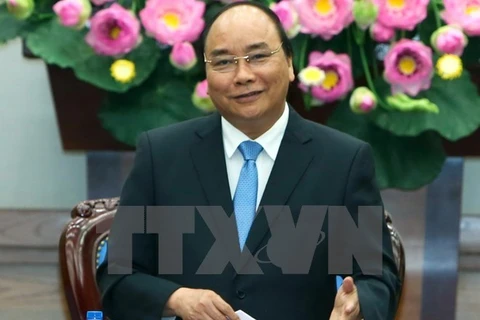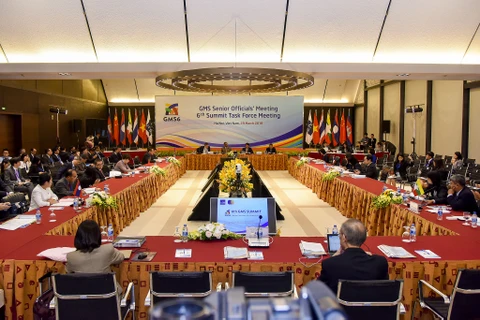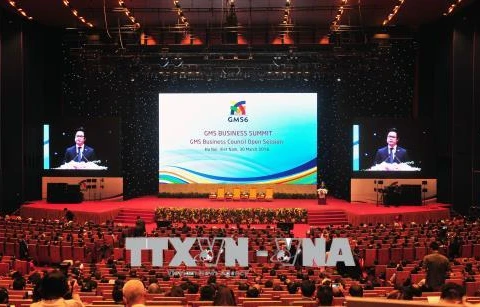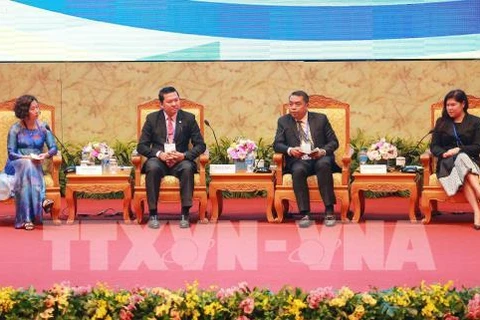Hanoi (VNA) – Vietnam will provide all possible conditions it can for international investors, donors and organisations to get involved in developing transport infrastructure in the country, said Transport Minister Nguyen Van The.
Speaking at a session on infrastructure development and financing as part of the Greater Mekong Subregion (GMS) Business Summit in Hanoi on March 30, The said that infrastructure plays a special important role in socio-economic development of a nation and infrastructure development is a priority of many developing countries, including Vietnam.
Over the past years, the Vietnamese Government has spent much, about 9-10 percent of its annual GDP, on transport, energy, telecommunications and water infrastructure, he said.
However, transport infrastructure system in Vietnam still has a small scale with asynchronous connection. The country now has only 756 kilometers of expressway while the railway system, mainly built in the French-dominated period, is out-of-date. There are 21 airports, including eight international ones but none of them meets regional standards.
According to the minister, Vietnam plans to continue completing its expressway system in the coming time. Between now and 2020, the country expects to finish construction of about 654 kilometers out of 1,300 kilometers of highway.
It also considers the building of many new roads and hi-speed railways to get connected with ASEAN, GMS and trans-Asia road systems, while paying attention to airport development, including the construction of Long Thanh International Airport with capacity of 100 million passengers and 5 million tonnes of cargo in the southern province of Dong Nai, he said.
In this process, Vietnam hopes to receive more support and assistance, especially official development assistance (ODA), from donors and governments, The stressed.
Japanese Ambassador to Vietnam Umeda Kunio said his Government has put forth an initiative to promote quality infrastructure as well as made efforts to improve connectivity in the GMS region.
As a partner of the GMS, Japan has provided strong support for fostering the regional economic growth, contributing to narrowing the development gap as well as boosting investment and trade, through infrastructure development projects.
Japan’s assistance not only covers hard infrastructure development such as expressways and bridges but also human resources training and development of areas along the economic corridor, he said.
He pledged to continue increasing support for GMS countries in an effort to create a new momentum for regional collaboration.
According to Dag Detter, BCG senior advisor, renowned author and advisor in public asset utilisation, infrastructure plays a fantastic role in economic development. Developing infrastructure needs the involvement of both public and private sectors.
The first-ever Greater Mekong Subregion (GMS) Business Summit forms part of the sixth GMS Summit (GMS-6) and the 10th Cambodia-Laos-Vietnam Development Triangle Summit (CLV-10).
As an initiative of host Vietnam, the event aims to strengthen dialogues between enterprises and governments and connect businesses in the region and the world, while encouraging resources from the private sector for the GMS Programme.-VNA
VNA
























